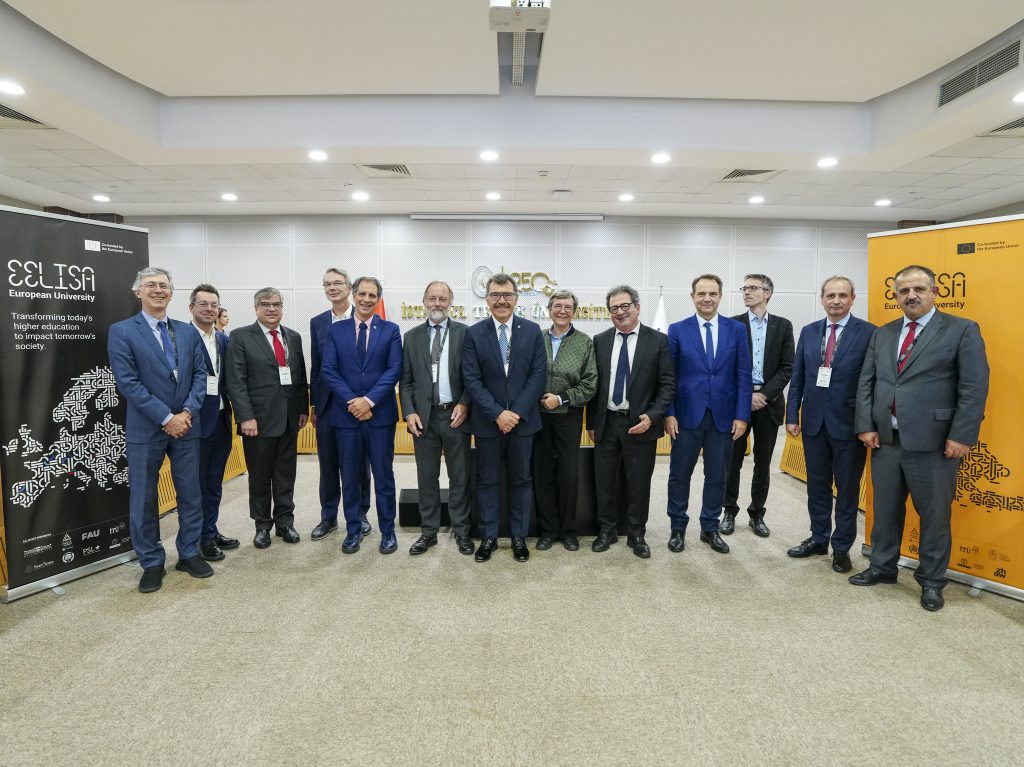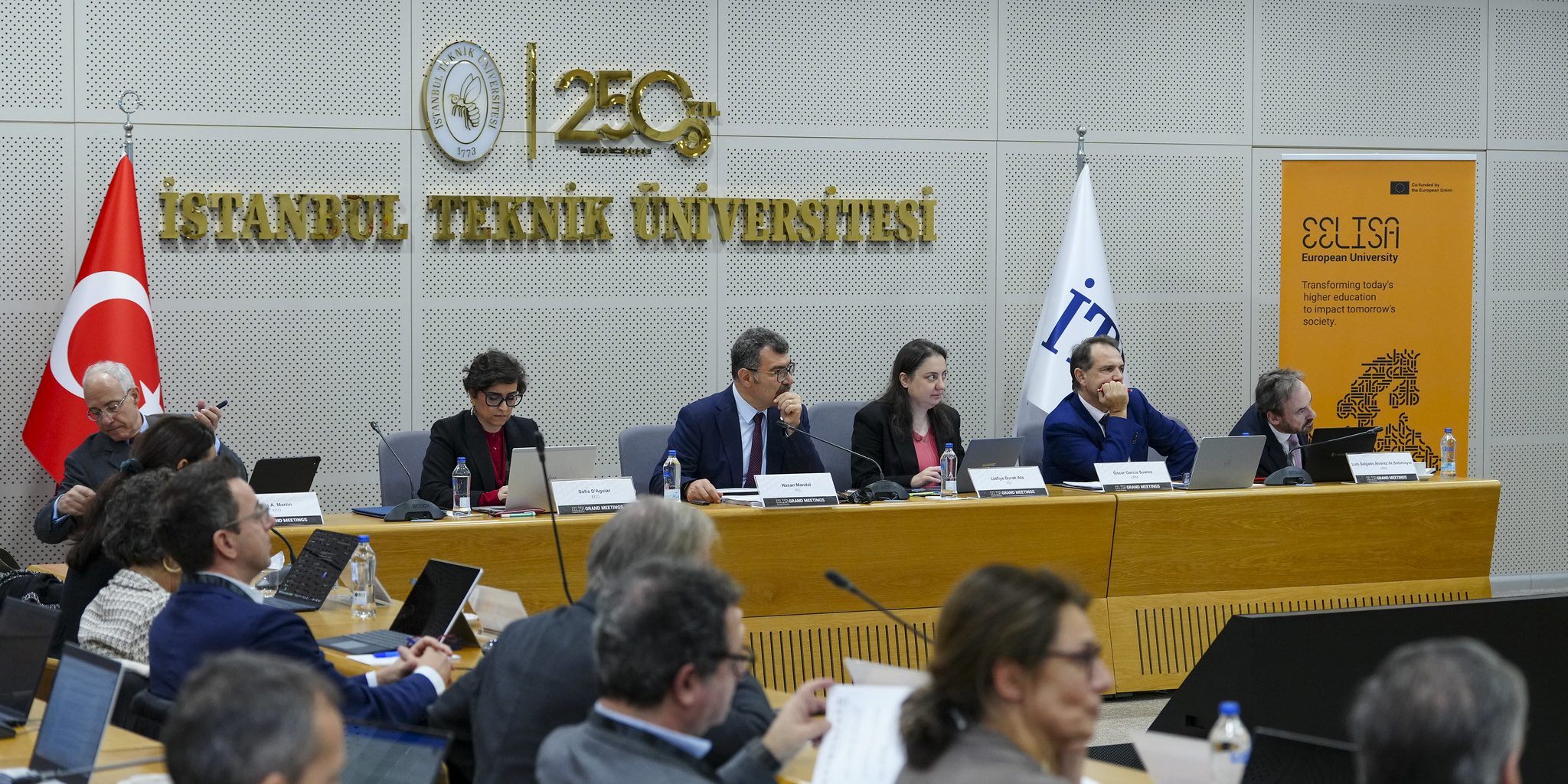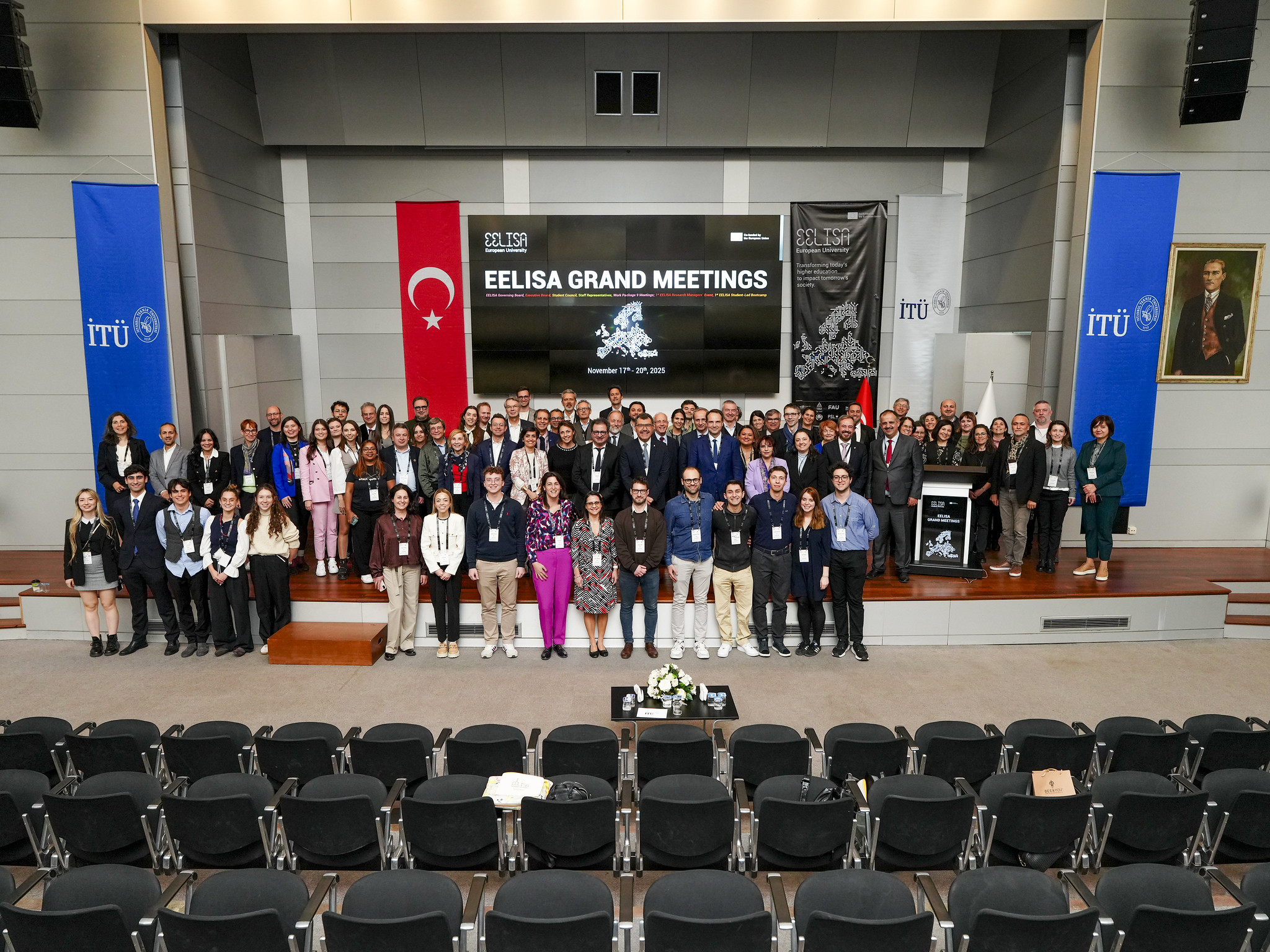Last week, the members of the EELISA Governing Board gathered to take stock of the Alliance’s achievements during its first two years of the roll-out phase of the alliance and to chart the next steps for its expansion, consolidation, and long-term sustainability. Building on discussions held during their previous meeting in Paris, board members revisited progress, examined alignment with evolving European policy priorities, and advanced key strategic decisions essential to EELISA’s future.
Over the course of an intensive two-day program, the Governing Board tackled a substantial agenda. They reviewed the overall state of progress of the Alliance, assessed the Report and Recommendations from the 2nd Evaluation Committee, and outlined the roadmap toward establishing an EELISA Legal Entity and the Alliance’s sustainability plan beyond 2027. Discussions also included a dedicated session on EELISA Innovation and the endorsement of new recommendations aimed at strengthening institutionalisation, staff engagement, and recognition across member universities.
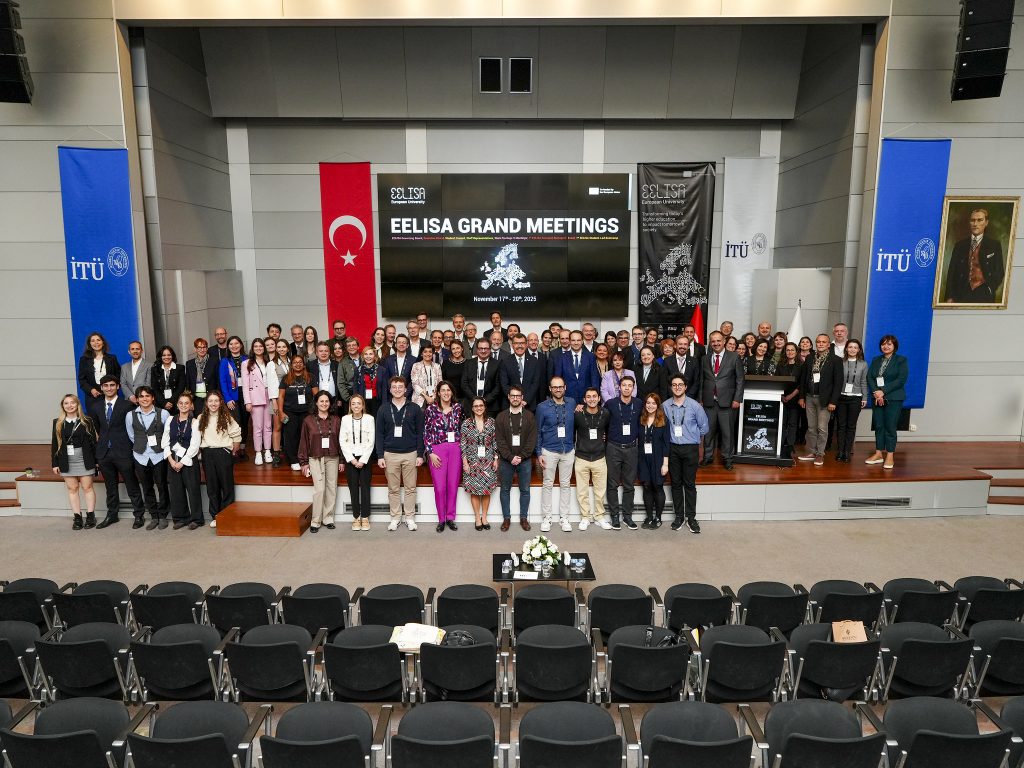
Group picture of EELISA teams gathered for the EELISA Governance Meetings in ITU (Istanbul).
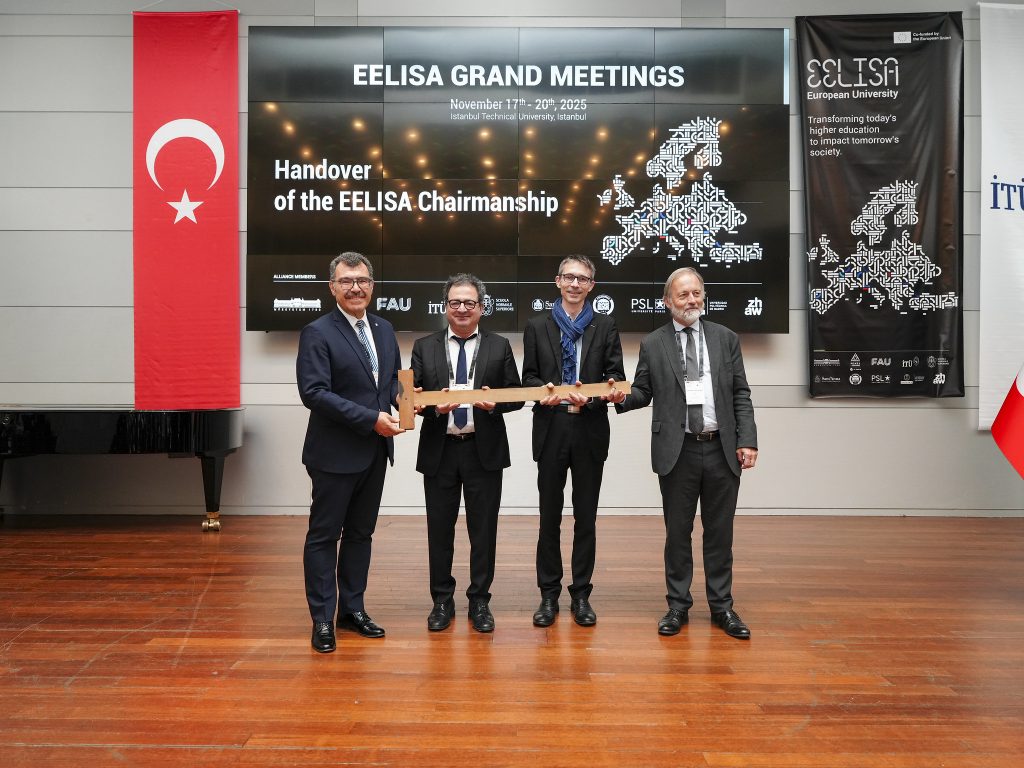
Heads of ENPC, PSL and ITU during the handover of the EELISA Chairship ceremony
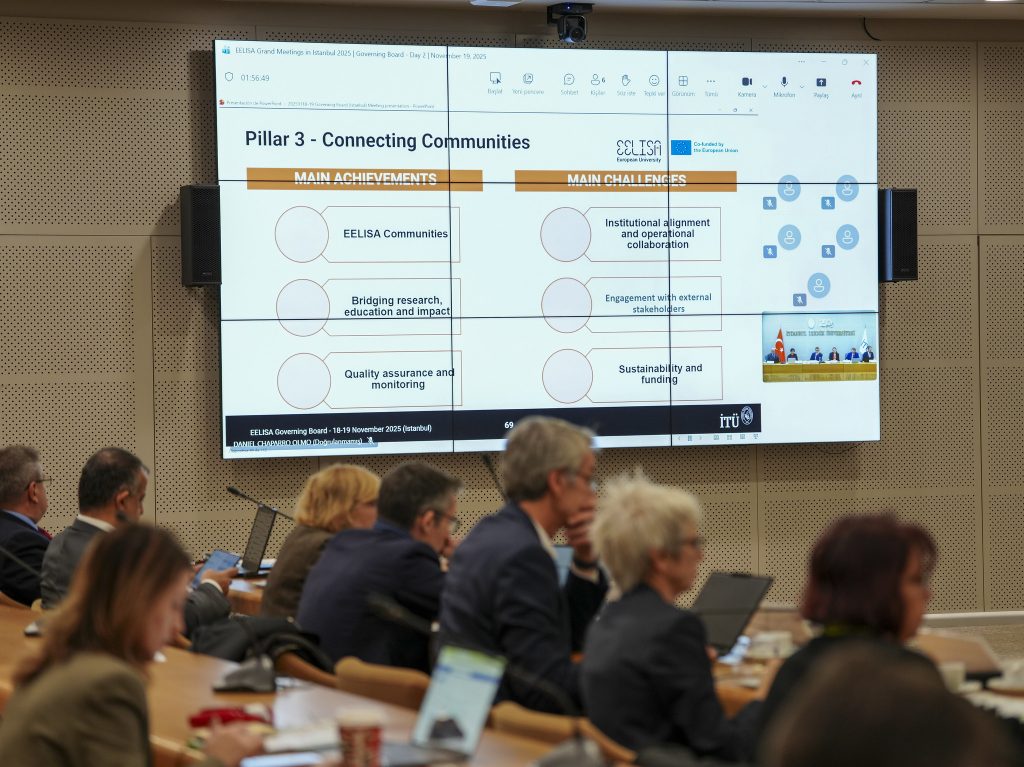
EELISA Governing Board members assessing achievements during the first working session.
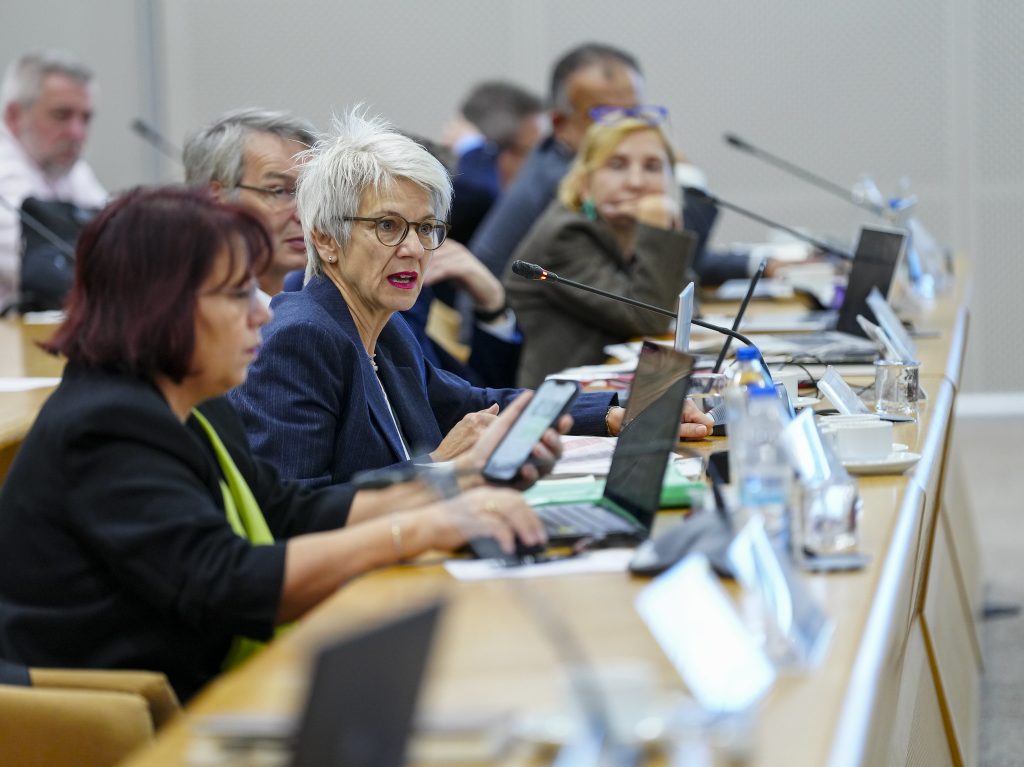
EELISA Governing Board members during the second working session.
WELCOMING NEW ASSOCIATED PARTNERS
The major highlight of this meeting was the welcoming of the two new EELISA’s associated partners—the University of São Paulo and the Technical University of Moldova. As affiliate members not receiving EU funding, USP and UTM will help advance the alliance’s strategic goals and broaden its reach while gaining access to EELISA’s dynamic ecosystem with opportunities for collaboration, knowledge exchange, and enhanced visibility.
The University of São Paulo (USP), founded in 1934, stands out as a world-class institution with more than 5,300 professors, nearly 80,000 students, 12,000 staff members, and over 580 academic programs across all fields of knowledge; consistently ranked among the world’s top 200 universities, it produces about 20% of Brazil’s total scientific output and is supported by a vibrant network of cultural and public outreach initiatives. “This collaboration will provide our students with greater opportunities to engage in the initiatives promoted by the Alliance, fostering increased bilateral exchange of students and researchers, as well as the development of joint projects between our institutions. We are confident that this initiative will consolidate and elevate USP’s internationalization efforts to new levels of excellence and global relevance”, says Carlos Gilberto Carlotti Jr, President of the USP.
The Technical University of Moldova (UTM) is the leading higher education institution in engineering, technology, and innovation in the Republic of Moldova. With over 12,500 students across 11 faculties, it offers study programs in Romanian, English and French, covering a broad spectrum of fields – from mechanical and electrical engineering to information technology, design, food technology, veterinary medicine, agricultural, fostering innovation, sustainability, and academic excellence through global partnerships and research initiatives. In the words of Viorel Bostan, its Rector: “We are confident that the partnership with EELISA will strengthen UTM’s capacity to train and educate globally competitive specialists through the exchange of best practices, joint projects and interdisciplinary educational initiatives. At the same time, involvement in this prestigious Alliance will contribute to creating an open academic space in which science and engineering become tools for sustainable development and progress”
For Hasan Mandal, Istanbul Technical University’s Rector and the new EELISA Governing Board Chairman, “The University of São Paulo and the Technical University of Moldova expand EELISA’s scientific capacity and geographic reach, reinforcing our ambition to advance transnational education, joint research, and societal impact.” Anthony Briant, outgoing co-chairman and Director of École nationale des ponts et chaussées (ENPC), added that this impact is also strategically significant at the institutional and European level: “Our new associated partners not only validate this premise but also complement and amplify our educational, societal, and ecological impact”. Echoing this vision, El Mouhoub Mouhoud, President of Université PSL and outgoing co-chairman, emphasized, “This partnership marks a promising step toward impactful and sustainable progress and the beginning of a broader international opening for EELISA.”
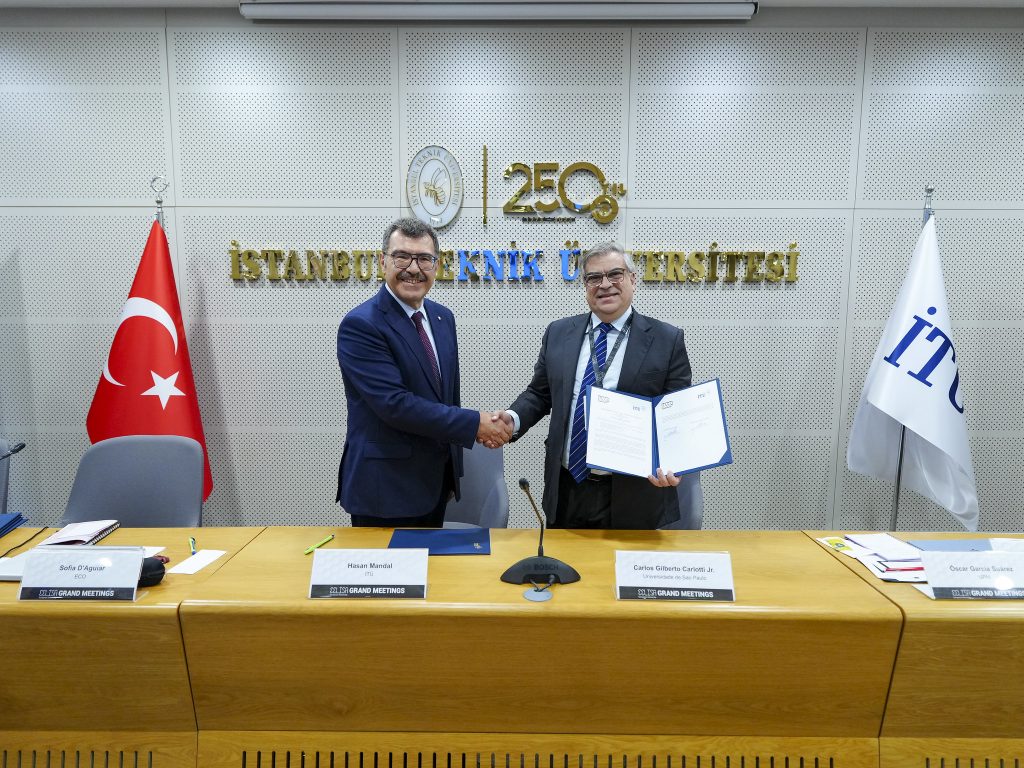
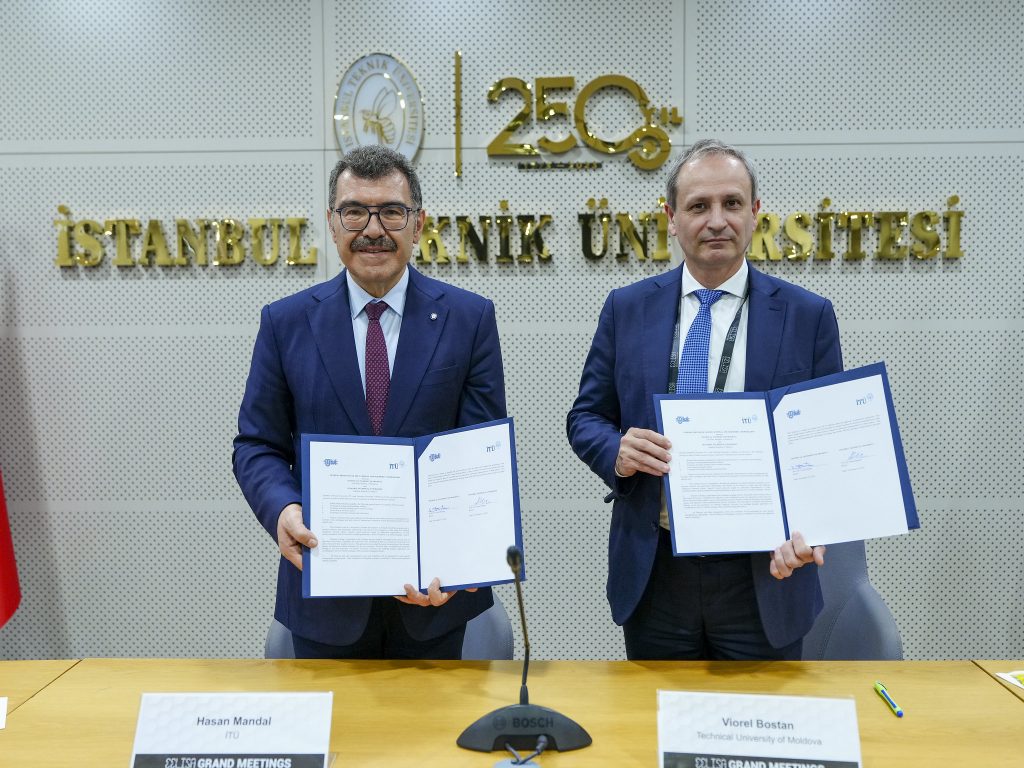
Hasan Mandal, ITU Rector, with Carlos Gilberto Carlotti Jr, President of the USP (left) and Viorel Bostan, Rector of the UTM (right) following the signing of the accession agreements.
RELEASE OF THE EELISA JOINT STATEMENT ON ENLARGEMENT
The EELISA–USP and EELISA–UTM accession agreements arrive at a moment when the Alliance has officially presented its new enlargement strategy, becoming an important milestone further underscored by the signing of the EELISA Joint Statement, Expanding Horizons: EELISA’s Commitment to Global Collaboration. Hosted by ITU Rector Hasan Mandal, the signatories stepped forward one by one, taking their seats at the long table with smiles on their faces and pens in hand, placing their signatures beneath the golden emblems bearing the university’s name, the bee symbol of the institution, and the “250” marking its recent anniversary. A Turkish flag, another displaying the ITU emblem, and two EELISA roll-ups flanking the table completed the ceremonial setting. At this pivotal moment—two years into the implementation of EELISA’s roll-out phase (2023-2027)—Rectors, Presidents, and Directors of the alliance’s member institutions reaffirmed their shared vision and collective commitment to advancing higher education in Europe and beyond. Thus, this statement emphasized EELISA’s dedication to openness, dialogue, and academic solidarity, extending its mission beyond the European Union to promote multilateralism, mutual respect, and the free exchange of knowledge. It represents a concrete step toward building a more connected, cooperative, and resilient global academic community in a world increasingly marked by polarization.
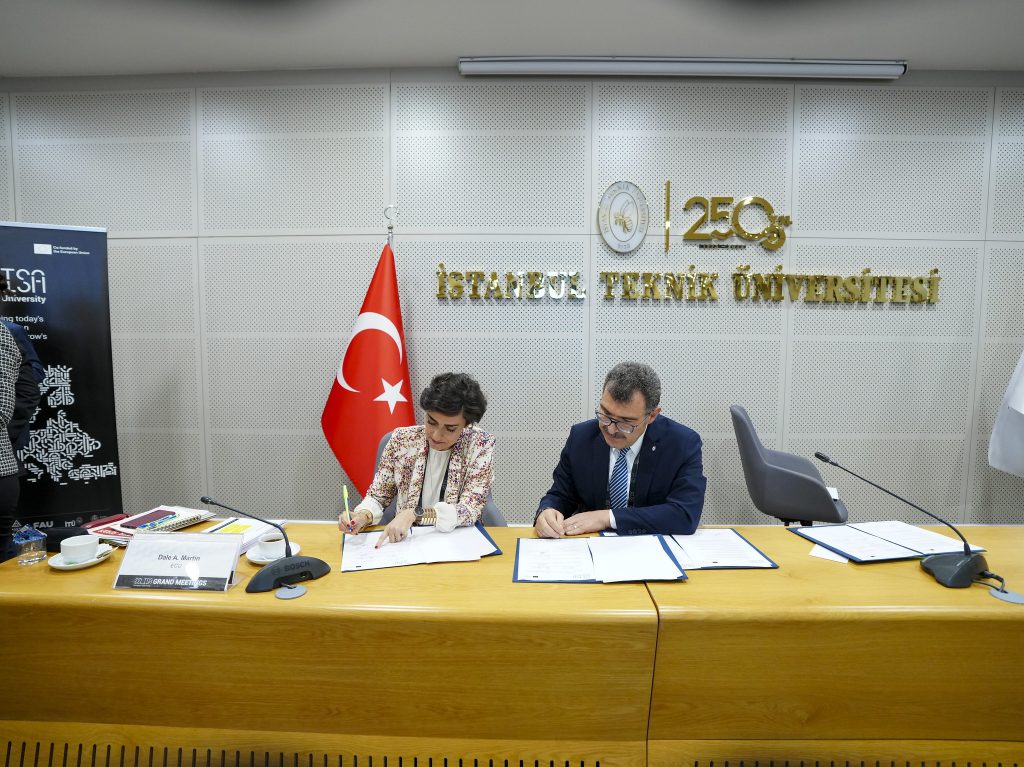
EELISA Executive Director Sofia d’Aguiar signs the joint statement hosted by the ITU Rector.
